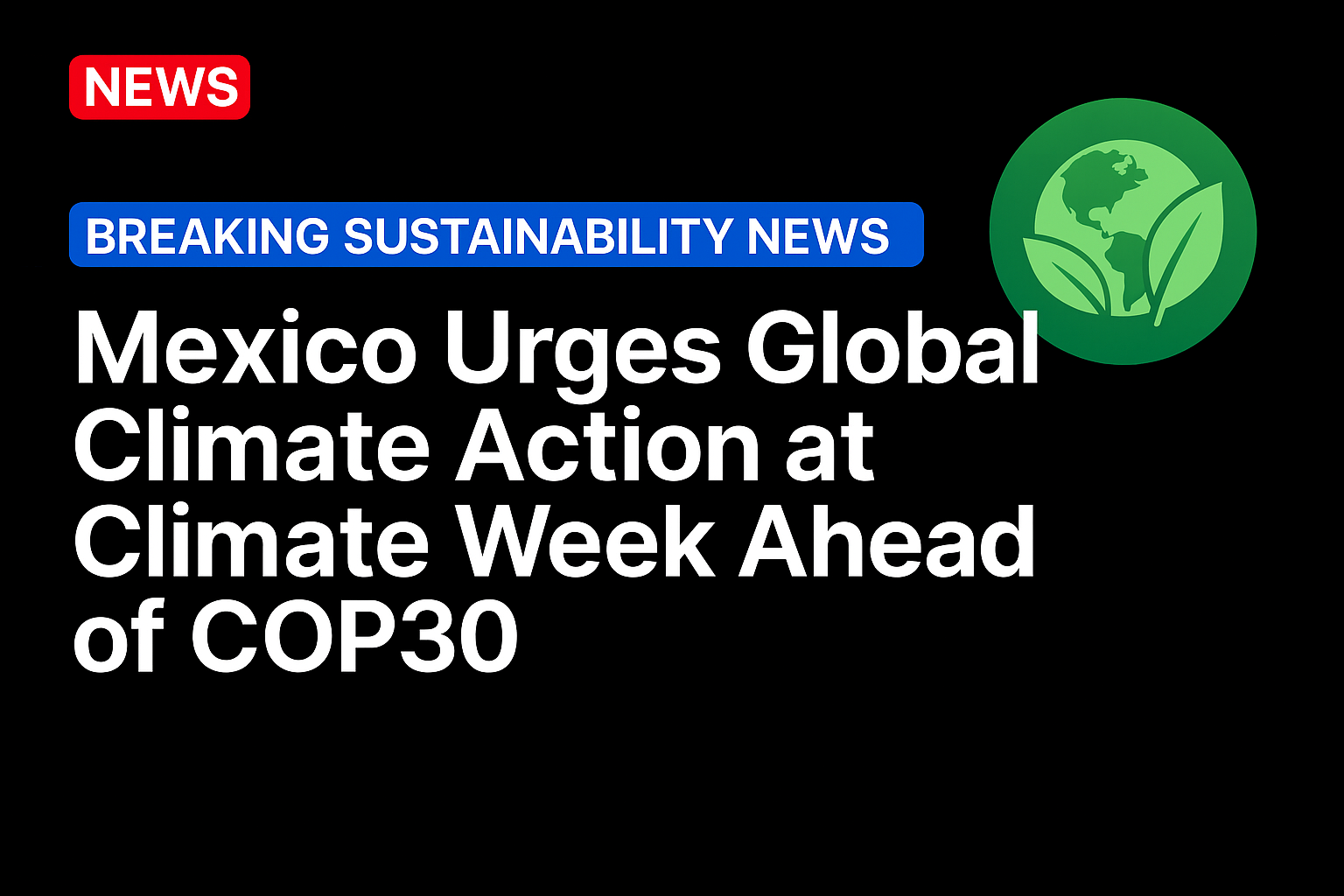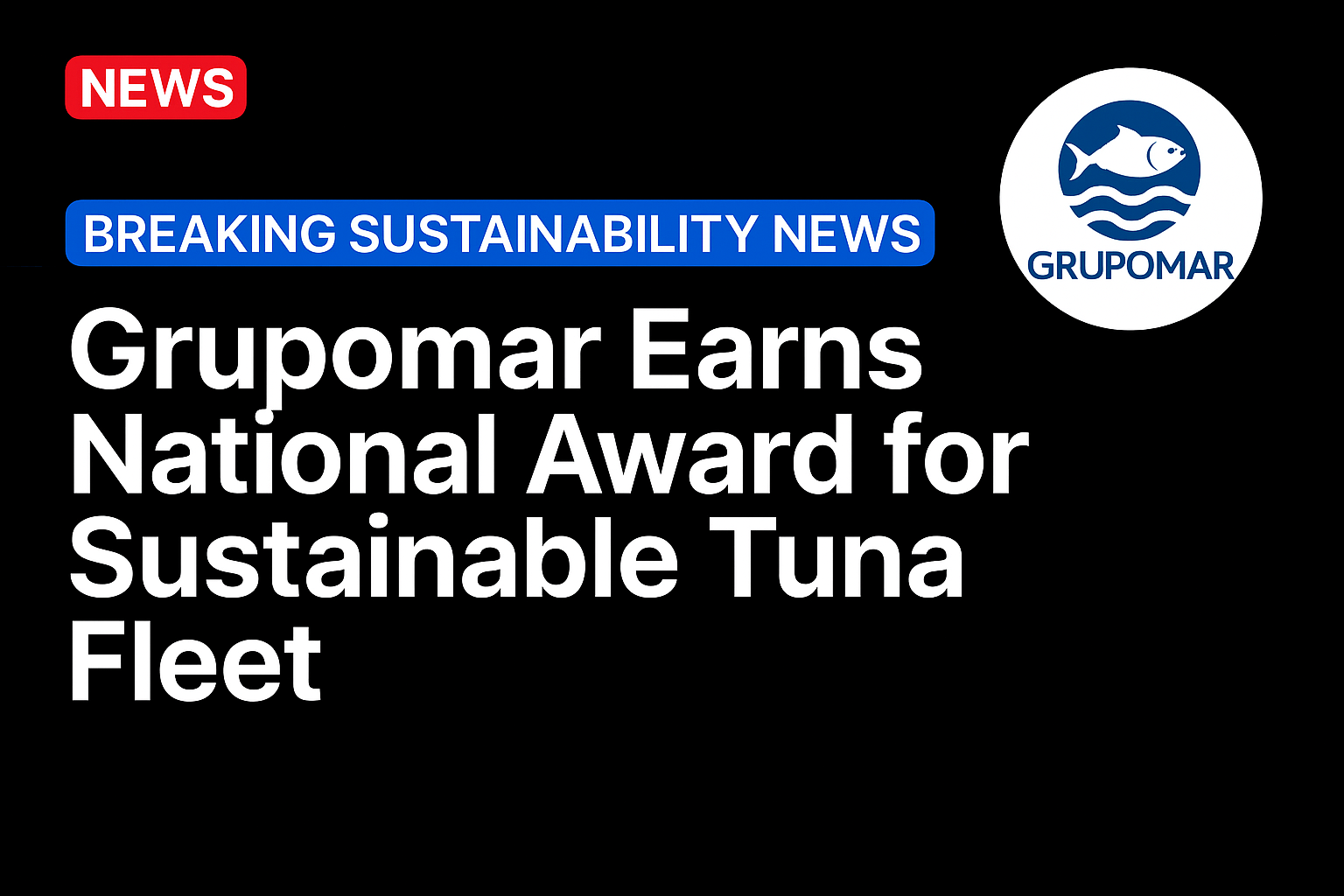During Climate Week 2025, a Mexican delegation led by Minister of Environment and Natural Resources Alicia Bárcena reinforced the country’s climate commitments and called for stronger global cooperation ahead of COP30 in Belem, Brazil. Climate Week, held in New York City alongside the 80th UN General Assembly, is the world’s largest climate summit outside of COP.
Bárcena’s agenda included high-level talks on adaptation, mangrove protection, climate finance, the green economy, and industrial decarbonization. She also held bilateral meetings with counterparts from the European Union, the United Kingdom, Germany, and the United States, focusing on sustainability, energy security, water resilience, and circular economy initiatives.
At Climate Week’s opening on Sept. 22, Bárcena urged the international community to rethink extractivist economic models driving the climate crisis. “We need a paradigm shift that goes beyond the overexploitation of our natural resources,” she said, emphasizing adaptation and just climate financing for Latin America and the Caribbean. She reaffirmed Mexico’s commitment to sustainable development based on social justice and nature-based solutions.
On day three, Bárcena previewed updates to Mexico’s Nationally Determined Contribution (NDC). NDC 3.0, to be presented in full at COP30, will outline efforts to reduce national emissions in line with the target of keeping global warming below 1.5 °C above pre-industrial levels. The updated plan will establish a new absolute emissions reduction target for 2035, aligned with Mexico’s net-zero by 2050 trajectory. It will incorporate adaptation measures, ecosystem restoration, and loss-and-damage considerations.
Mexico’s NDC 2.0 already commits to a 35% emissions reduction by 2030, equivalent to roughly 225 million metric tons of CO₂. Key policies include constructing 3,000 kilometers of electric train lines and transitioning thermoelectric plants from fuel oil to natural gas.
Bárcena highlighted the role of nature-based solutions, noting that Mexico’s ecosystems absorbed 208 million metric tons of CO₂ equivalent in 2024. A National Restoration Plan aims to reforest 220,000 hectares of forests, jungles, and mangroves. Mexico currently has 232 protected natural areas covering 99 million hectares, with plans to expand to 155 million hectares to protect 30% of land and marine territory by 2030, prioritizing local participation, including women, Indigenous peoples, and rural communities.
NDC 3.0 is being developed with consultation from industries including construction, steel, mining, agriculture, and state-owned companies PEMEX and CFE, to ensure targets are “realistic and feasible” for 2035. Guillermo Gómez, CEO, G2H Consultoría Sustentable, noted that previous NDCs, while ambitious, “lacked solid operational plans, clear budgets, or clearly designated institutions.”
Bárcena repeatedly stressed the need for climate finance, calling it the largest obstacle for Latin America and the Caribbean. Speaking at a ministerial dialogue hosted by COP30 president Andre Corrêa do Lago, she urged contributions from multilateral banks and the development of concessional and innovative financial instruments to support a just transition.
Source: https://mexicobusiness.news/




